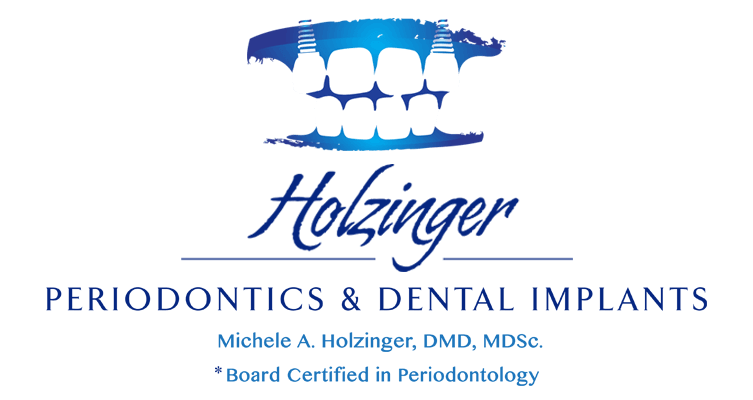Maintaining excellent oral health involves more than just brushing and flossing. While your general dentist plays a crucial role in your routine care, there are times when specialized attention is necessary. A periodontist is a dentist who specializes in the prevention, diagnosis, and treatment of periodontal disease, also known as gum disease. They receive extensive training beyond dental school, focusing specifically on the soft tissues of your mouth and the underlying jawbone which supports your teeth. Recognizing the signs that indicate a need for a periodontist’s care is the first step toward protecting your gums and preserving your overall health.
At Holzinger Periodontics & Dental Implants, we believe in empowering our patients with knowledge. Understanding when to seek specialized care can prevent minor issues from becoming more complex problems. Many patients are referred to us by their general dentists, but it is also important for individuals to be aware of their own oral health. Persistent gum issues, even if they seem minor, can be early indicators of underlying conditions that require the expertise of a periodontal specialist. We are here to provide that specialized care with a welcoming and professional approach.
Persistent Gum Bleeding or Swelling
One of the most common and noticeable signs of potential gum issues is bleeding. If you consistently notice blood when you brush or floss, it should not be ignored. While occasional, minor bleeding might result from brushing too hard, persistent bleeding is a classic symptom of gingivitis, the earliest stage of periodontal disease. Gingivitis occurs when plaque, a sticky film of bacteria, builds up along the gumline, causing inflammation. Your gums may also appear red, swollen, or feel tender to the touch.
When left untreated, gingivitis can advance to periodontitis, a more severe form of gum disease. As the condition progresses, the inflammation can cause your gums to pull away from your teeth, creating small pockets. These pockets can trap more bacteria, leading to deeper infection that can damage the bone and connective tissues that hold your teeth in place. If you are experiencing regular gum bleeding or inflammation, it is a clear signal that a comprehensive periodontal evaluation is needed. A periodontist can accurately diagnose the stage of gum disease and recommend the most effective treatment to halt its progression and restore your gum health.
Receding Gums or Loose Teeth
Have you noticed your teeth looking longer than they used to? This phenomenon is often a sign of gum recession, a process where the gum tissue surrounding your teeth pulls back or wears away, exposing more of the tooth or its root. Gum recession is a significant concern because the roots of your teeth are not covered by the same hard enamel as the crowns. This exposure can lead to increased tooth sensitivity, especially to hot and cold temperatures, and makes the roots more vulnerable to decay. Recession can be caused by several factors, including aggressive brushing, genetic predisposition, and, most commonly, periodontal disease.
In conjunction with receding gums, you may also experience changes in how your teeth fit together or notice that one or more teeth feel loose. Loose teeth are a serious warning sign that the underlying support structure—the bone and periodontal ligaments—has been damaged by advanced periodontitis. As the disease destroys these tissues, teeth lose their firm anchor and can begin to shift or become mobile. Any degree of tooth mobility is a clear indication that immediate specialized care is required. A periodontist can assess the extent of the bone loss and gum recession and discuss treatment options, which may range from deep cleanings to more advanced regenerative procedures, to save your teeth and stabilize your bite.
Bad Breath and Changes in Your Bite
Chronic bad breath, known medically as halitosis, can be another subtle yet important sign of underlying periodontal disease. While bad breath can be caused by certain foods or poor oral hygiene, persistent halitosis that doesn't go away with brushing and flossing often points to a deeper issue. The bacteria that cause gum disease produce sulfur compounds, which create a distinct and unpleasant odor. This odor comes from the bacteria thriving in the pockets between your teeth and gums, an area that regular cleaning cannot always reach. If you find yourself constantly battling bad breath, it is wise to have your gums evaluated by a specialist.
Furthermore, you might notice changes in the way your teeth fit together when you bite down. This can manifest as a new or changing gap between your teeth or a general feeling that your bite is "off." These changes often occur as a result of bone loss and the subsequent shifting of teeth caused by advanced periodontitis. Similarly, if you wear a partial denture that no longer fits correctly, it could be a sign that the underlying bone and gum structure has changed. A periodontist is expertly trained to diagnose the cause of these changes and can provide specialized treatments in periodontics to address the infection and help restore stability to your bite.
Protecting Your Gum Health for a Lifetime
Recognizing the early signs of gum disease is vital for maintaining your oral and overall health. If you experience persistent bleeding, swollen gums, recession, loose teeth, or chronic bad breath, scheduling an evaluation with a periodontist is a proactive step. At our practice in Middletown, we are dedicated to providing comprehensive and compassionate care to help you manage and overcome periodontal issues. By addressing these symptoms early, we can help you protect your smile and ensure the long-term health of your teeth and gums.
Frequently Asked Questions
What is the difference between a dentist and a periodontist?
A general dentist provides a wide range of oral healthcare services, including check-ups, cleanings, fillings, and crowns. A periodontist is a dentist who completes several years of additional specialized training after dental school. This advanced education focuses exclusively on the gums and the bone supporting the teeth. Periodontists are experts in diagnosing and treating all stages of gum disease, from mild gingivitis to severe periodontitis, and are also specialists in the placement of dental implants.
Is a referral required to see a periodontist?
While many patients are referred to a periodontist by their general dentist, a referral is not always necessary. If you are experiencing any of the signs or symptoms of gum disease, such as bleeding gums, gum recession, or loose teeth, you are welcome to schedule a consultation directly with our office. Taking the initiative to see a specialist can lead to an earlier diagnosis and more effective treatment, helping you preserve your natural teeth for as long as possible.
At Holzinger Periodontics & Dental Implants, our father-daughter team is committed to providing specialized care in a comfortable and professional environment. Serving the Middletown community for decades, we combine experience with the latest technology to deliver outstanding results for our patients. If you have concerns about your gum health or wish to schedule a consultation, please do not hesitate to contact us.

